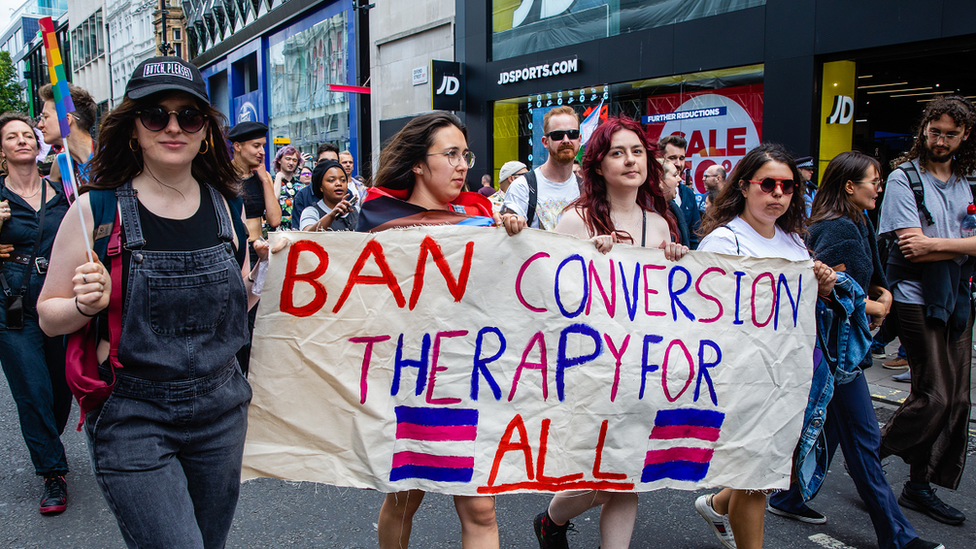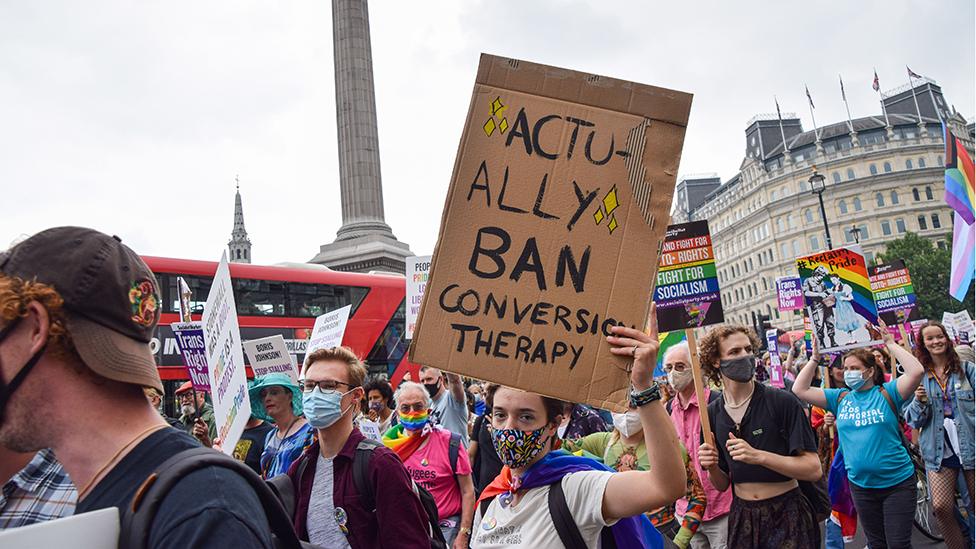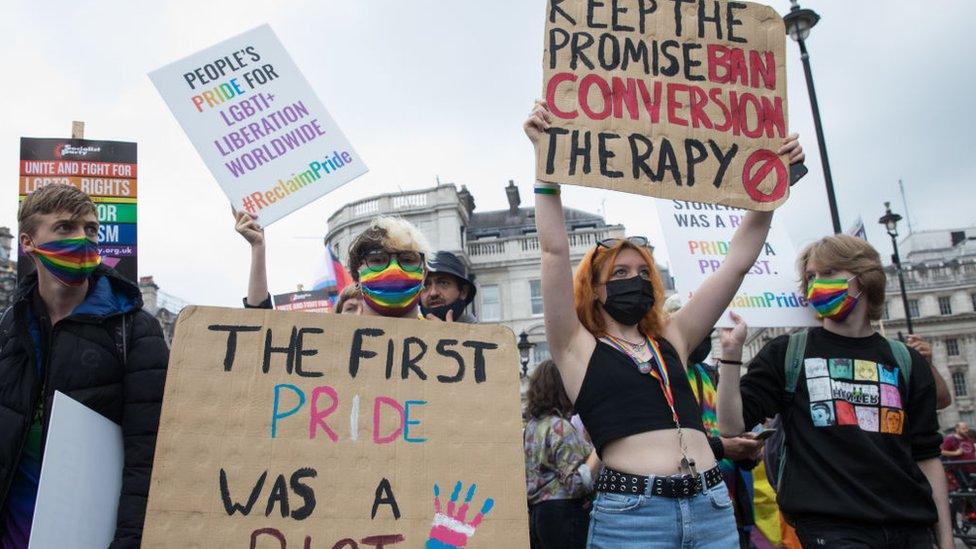UK conversion therapy ban to include trans people
- Published

A new law to ban all forms of conversion therapy in England and Wales will include practices aimed at transgender people, the government says.
The ban will outlaw attempts to change someone's sexuality or gender identity.
Mental health groups have warned all types of conversion therapy are "unethical and potentially harmful", external.
The government had previously said transgender conversion therapy would not be included in the ban.
Culture Secretary Michelle Donelan said in a written statement, external that the bill would be published shortly and would "protect everyone, including those targeted on the basis of their sexuality, or being transgender".
Ms Donelan says it is a "complex" area and legislation must not "harm the growing number of children and young adults experiencing gender-related distress, through inadvertently criminalising or chilling legitimate conversations parents or clinicians may have with their children".
"We recognise the strength of feeling on the issue of harmful conversion practices and remain committed to protecting people from these practices and making sure they can live their lives free from the threat of harm or abuse," she added.
The bill will undergo pre-legislative scrutiny by a joint committee.
Conversion therapy - sometimes called "gay cure" therapy - tries to supress someone's sexual orientation or stop them identifying as a different gender to their sex recorded at birth.
It can include talking therapies and prayer, but more extreme forms can include exorcism, physical violence and food deprivation.
It is not known exactly how widespread the practice is but 5% of 108,000 people who responded to a UK-wide LGBT survey in 2018, external said they had been offered some form of conversion therapy, while 2% had undergone it.
Of the transgender respondents, 8% said they had been offered conversion therapy and 4% said they had undergone it.

Analysis
By LGBT & identity producer Josh Parry
The government was probably hoping its conversion therapy ban would be met with applause from campaigners who have spent years asking for it to become law.
Instead, it has been met with a more cautious welcome. It is not the first time such promises have been made.
Cast your mind back to 2018, when the government made a raft of announcements after its landmark LGBT Action Plan.
One of the headline pledges was a plan to stop so-called conversion therapy practices.
Since then, there have been several U-turns, endless debates in the media and even resignations from the government's LGBT advisory panel.
While the announcement has been met with some caution, the government has committed to a rough time frame. It says details of the law will be thrashed out by MPs, Lords and experts some time before the autumn.
The culture secretary hopes this scrutiny will stop the bill having "unintended consequences" and protect "everyone" from such practices.

The government had announced last year that it was entirely scrapping plans for a ban, before quickly backtracking.
It then decided therapy relating to a person's sexuality would be banned but said its plans would not cover trans people and that separate work would be carried out into the "complexity of issues".
It said there were worries that a ban including transgender people could have "unintended consequences" which might affect teachers, parents and therapists helping children who are struggling with their gender identity.
That decision followed the Cass Review interim report, external which called for a rethink of children's gender identity services in England.
However, a group of mental health bodies, including the NHS, published an open letter downplaying the risk of unintended consequences and called for any ban to include trans people.
The bill will now include all forms of conversion therapy including over-18s "who do not consent and who are coerced or forced to undergo" the practice.
Justin says the conversion therapy process left him "completely emotionally traumatised"
Leni Morris, chief executive of LGBT+ anti-abuse charity Galop, has told the BBC she is glad to see trans people will be included within the proposed ban.
She's encouraging the government to bring "this vital piece of legislation" to Parliament quickly with no more delays as they work with "victims and survivors who are experiencing conversion practices right now and our community deserves to be protected".
Galop runs the National Conversion Therapy Helpline which is funded by the government and helps people who have had, or are at risk of, conversion therapy.
Andrea Williams, chief executive of Christian Concern, said the ban would "end up criminalising consensual conversations with those who genuinely want help and support".
Christian Concern has said it is preparing legal action against any proposed legislation in this area.
Tuesday's announcement comes after the UK government blocked Scottish plans designed to make it easier for people to change their legal sex.
Ministers said the draft law would conflict with equality protections applying across Great Britain.
Related topics
- Published20 September 2024

- Published12 May 2022

- Published6 April 2022
